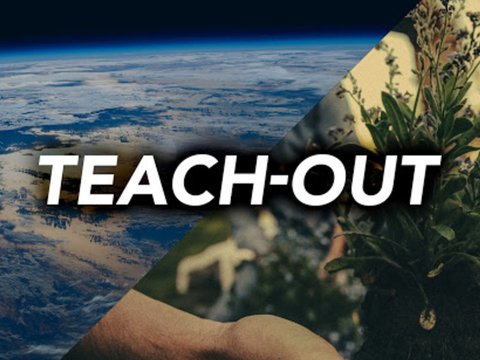A Climate Scientist's View on Climate Change
Jonathan Overpeck, Dean in the School for Environment and Sustainability, offers insights into how climate science will plan for the future of sustainability.
Excerpt From

Transcript
0:00 forty years ago I was getting a 0:02 bachelor's degree in geology 0:05 second-generation geologist I thought I 0:07 was going to go off and be a mining 0:08 geologist like my dad and instead I got 0:14 recruited a grad school where they were 0:16 starting to study and really define the 0:19 whole field of paleo climatology which 0:21 is a study of ancient climates and that 0:23 was really exciting for me because it 0:25 allowed me to meld geology in 0:26 geosciences or science with history 0:29 which was one of my another one of my 0:31 love's and trying to understand earth 0:33 history from the perspective of how 0:34 climates have changed over decades 0:37 centuries all the way to multiple 0:39 millennia and that was pretty exciting 0:44 for me and it wasn't long after getting 0:46 my PhD I landed in a laboratory at NASA 0:52 and where everyone was talking about 0:55 climate change and I know a lot about 0:58 climate change because I knew about how 0:59 climates changed naturally but I hadn't 1:03 really gotten a full feeling for how our 1:06 emissions of greenhouse gases are 1:09 altering the planetary climate today and 1:12 back then this would be in the 80s you 1:16 know it was just really becoming crystal 1:18 clear that we were changing the Earth's 1:20 climate but it wasn't really crystal 1:23 clear yet how fast that would be nor how 1:26 large the impacts would be fast forward 1:28 to now in the 21st century it's really 1:32 clear the Arctic is warming much faster 1:33 than we thought 1:34 ice sheets are destabilizing faster than 1:37 we thought 1:37 a lot of the natural world is responding 1:40 more quickly we're getting more intense 1:43 precipitation and so our careers have 1:46 changed from just studying the problem 1:48 and trying to understand that to trying 1:51 to think more about what it means for 1:53 the future and what the solutions are 1:55 going to be for the future there are a 1:57 lot of my colleagues I've worked with on 1:59 trying to figure out well how do we 2:01 reduce the greenhouse gas emissions that 2:03 are causing it that's of course if 2:05 you're a doctor you want to get at the 2:07 cause but at the same time we're going 2:09 to have the symptoms of climate change 2:10 for years to come even if 2:13 successful and stopping it and so we 2:16 have to learn how to adapt to those 2:18 changes the different world that we have 2:20 now and make it one that is more 2:22 sustainable for the future so not only 2:25 will we do well in our livelihoods and 2:28 our with our families and quality of 2:31 life but future generations will be able 2:33 to enjoy that same quality it's a tough 2:36 job and I think it's really exciting as 2:38 a climate scientist to have lived 2:40 through this period but it's also quite 2:42 daunting to realize how huge this 2:45 problem is and how urgent it is to solve 2:48 it